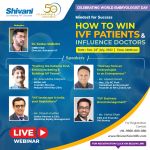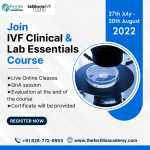
IVF NewsNews: Microscopic structures in semen could affect implantation
Joseph Hawkins 03 August 2022
Microscopic sacs, known as exosomes, present in semen may shed light on previously unexplained cases of male infertility. Unexplained male infertility refers to a diagnosis of males who have undergone routine semen analysis which had not identified any abnormalities. In the UK, around 25 percent of cases of male infertility are unexplained. At the recent annual meeting of the European Society of Human Reproduction and Embryology (ESHRE) Hadis Gholipour, a PhD student at the Iran University of Medical Sciences involved in the work, told the conference 'They're a challenging group to treat', New Scientist reported. Exosomes are formed within a cell and typically contain cellular protein, DNA and RNA, which can be transferred to other cells as a form of cellular communication. Importantly, exosomes are present within seminal fluid and are known to bind to sperm and promote maturation. It has previously been shown that exosomes present in the semen of males with fertility problems differ from those found in the semen of males without fertility issues. The new research presented at ESHRE as an abstract which was published in the Journal of Human Reproduction, has shown that exosomes in the semen of infertile males may negatively influence the receptivity of the uterus lining to embryo implantation. The research team isolated exosomes from semen samples of ten males undergoing infertility treatment and ten sperm donor males without fertility problems. Cells from the uterus lining, known as the endometrium, were collected from six women during the follicular phase of the menstrual cycle, also known as the proliferative phase as the endometrium thickens during this time. These endometrial epithelial cells were cultured and incubated with the exosomes for six or 24 hours before the team analysed gene expression patterns. 'The incubated exosomes bind to the endometrial cells and can be found inside the cells. Once inside the cells, the exosomes can deliver diverse signals,' said Gholipour. Genes known to promote uterus receptivity were found to be significantly downregulated following incubation with the exosomes of males diagnosed with unexplained infertility. The research team have speculated that the exosomes of infertile males can reduce uterus receptivity by altering gene expression patterns and may be a cause of their infertility. The results presented at ESHRE represent only preliminary findings and further evaluation of a larger sample size will be undertaken soon. Moreover, the research team intend to assess the exosomal composition of fertile and infertile males to build upon their understanding of the role of exosomes in conception. Sources and References
[ Full Article ] News: Light shed on sperm DNA packing process
Clíona Farrell 03 August 2022
Crucial role of sperm DNA-packaging protein has been identified in mice, which causes infertility when truncated. During sperm production in humans, 23 DNA chromatin strands must be tightly wound into the head of the sperm. Because sperm cells are significantly smaller than typical human cells, sperm-specific proteins called protamines are required to tightly package and protect DNA during this process. Now, researchers from Germany have identified a previously unknown mechanism by which protamine 2 (PRM2) is required for fertility in mice. 'Most mammals seem to produce only one type of protamine, PRM1. In humans, but also rodents like mice, it's different – they have a second type, PRM2', said first-author of the study, Dr Lena Arevalo, University of Bonn, Germany. DNA is normally packaged more loosely around histone proteins, however, during sperm generation, histones are replaced by protamines. The N-terminal domain of PRM2 is normally cleaved during sperm DNA packaging. In this study, published in PLOS Genetics, the authors generated a mouse model in which the PRM2 N-terminal domain was absent, leaving only a truncated protein behind. This led to inefficient transfer of DNA from histones to protamines, and ineffective DNA packaging into sperm. Importantly, when mutant male mice which have only the truncated form of PRM2 were mated with healthy female mice, no offspring were produced. The mice were infertile. 'Proper PRM2 cleaving, therefore, seems to be crucial for successful reproduction, yet, the function of the [PRM2 N-terminal] domain and PRM2 processing are unknown to date' the authors explained in their paper. Further biochemical analysis showed that the sperm of these mice had impaired motility, abnormal shape and their DNA was fragmented, highlighting the importance of an intact N-terminal domain of PRM2. Unlike other species, having this second protamine is specific to mice and primates. As this DNA packaging process is thought to occur using similar mechanisms in humans, the researchers hypothesise that having a faulty PRM2 protein may cause infertility in men. 'We were able to provide a first glimpse into the function of cleaved PRM2 and PRM2 processing, that opens up multiple avenues for further investigation', concluded the authors. Sources and References
[ Full Article ] News: ART Guidelines: Notifications, Consent
Dr. Prof (Col) Pankaj Talwar VSM 26 July 2022

Join Special Curtain Raiser Class 28 𝙏𝙤𝙥𝙞𝙘: ART Guidelines: Notifications, Consent 𝘿𝙖𝙩𝙚: Friday 29th July. 2022 𝙏𝙞𝙢𝙚: 𝙨𝙝𝙖𝙧𝙥 8:00 PM - 9:00PM (IST) 𝙎𝙚𝙚 𝙮𝙤𝙪 𝘼𝙡𝙡 𝙤𝙣 Friday! 𝙁𝙤𝙧 𝙢𝙤𝙧𝙚 𝙞𝙣𝙛𝙤 𝙤𝙧 𝙩𝙤 𝙗𝙚 𝙩𝙝𝙚 𝙥𝙖𝙧𝙩 𝙤𝙛 𝙎𝙥𝙚𝙘𝙞𝙖𝙡 𝙒𝙝𝙖𝙩𝙨𝙖𝙥𝙥 𝙂𝙧𝙤𝙪𝙥:-𝙒𝙝𝙖𝙩𝙨𝘼𝙥𝙥 'ART' 𝙤𝙣 https://wa.me/918287883005 Team i-Ceat i-ceat.com #embryology #embryotransfer #artcoursesonline #ivfcourses #onlinetraining #ivf #embryologycourse #healthcarecareers #embryologycourses #ARTCourses #reproductivetechnology [ Full Article ] Announcement: HOW TO WIN IVF PATIENTS & INFLUENCE DOCTORS
Shivani Scientific 18 July 2022

Do you want to be known as one of the most trusted names in the IVF fraternity? [ Full Article ] Announcement: 𝙏𝙤𝙥𝙞𝙘: Ovulation Induction in ART
Dr. Prof (Col) Pankaj Talwar VSM 16 July 2022

Join Special Curtain Raiser Class 27 𝙏𝙤𝙥𝙞𝙘: Ovulation Induction in ART 𝘿𝙖𝙩𝙚: Friday 22nd July. 2022 𝙏𝙞𝙢𝙚: 𝙨𝙝𝙖𝙧𝙥 8:00 PM - 9:00 PM (IST) 𝙎𝙚𝙚 𝙮𝙤𝙪 𝘼𝙡𝙡 𝙤𝙣 Friday! 😊🙏🏻 𝙁𝙤𝙧 𝙢𝙤𝙧𝙚 𝙞𝙣𝙛𝙤 𝙤𝙧 𝙩𝙤 𝙗𝙚 𝙩𝙝𝙚 𝙥𝙖𝙧𝙩 𝙤𝙛 𝙎𝙥𝙚𝙘𝙞𝙖𝙡 𝙒𝙝𝙖𝙩𝙨𝙖𝙥𝙥 𝙂𝙧𝙤𝙪𝙥:-𝙒𝙝𝙖𝙩𝙨𝘼𝙥𝙥 'ART' 𝙤𝙣 https://wa.me/918287883005 Team i-Ceat😊🙏🏻 i-ceat.com
#embryology #embryotransfer #artcoursesonline #ivfcourses #onlinetraining #ivf #embryologycourse #healthcarecareers #embryologycourses #ARTCourses #reproductivetechnology [ Full Article ] News: IVF Clinical and Lab Essentials: A Comprehensive Course
Dr. Sarabpreet Singh 15 July 2022

The Fertilis Academy in association with Sadbhavna IVF School is offering "IVF Clinical and Lab Essentials: A Comprehensive Course". [ Full Article ] Announcement: Course 03- Ovulation Induction, IVF, OPU-ET, Reproductive Ultrasound, and QA/QC
Dr. Prof (Col) Pankaj Talwar VSM 15 July 2022

𝙍𝙚𝙜𝙞𝙨𝙩𝙧𝙖𝙩𝙞𝙤𝙣 𝙊𝙥𝙚𝙣 𝙛𝙤𝙧 𝙎𝙚𝙥. 2022 𝙗𝙖𝙩𝙘𝙝!! 𝙎𝙚𝙖𝙩𝙨 𝙖𝙫𝙖𝙞𝙡𝙖𝙗𝙡𝙚 𝙤𝙣 𝙛𝙞𝙧𝙨𝙩 𝙘𝙪𝙢 𝙛𝙞𝙧𝙨𝙩 𝙨𝙚𝙧𝙫𝙚 𝙗𝙖𝙨𝙞𝙨. 𝙍𝙚𝙜𝙞𝙨𝙩𝙚𝙧 𝙏𝙤𝙙𝙖𝙮! Course 03- Ovulation Induction, IVF, OPU-ET, Reproductive Ultrasound, and QA/QC Course Highlights:- 45+ 𝙝𝙧𝙨 𝙊𝙣𝙡𝙞𝙣𝙚 LIVE Classes + Recorded Video Links. Extensive Reading Material. Certification at the end of the Course. 18+ 𝙝𝙧𝙨 𝙀𝙭𝙩𝙚𝙣𝙨𝙞𝙫𝙚 𝙃𝙖𝙣𝙙𝙨 𝙊𝙣 𝙏𝙧𝙖𝙞𝙣𝙞𝙣𝙜 𝙞𝙣 𝙄𝙑𝙁 𝙇𝘼𝘽 & 𝙊𝙏 Complete Hand Holding 𝙁𝙤𝙧 𝙢𝙤𝙧𝙚 𝙞𝙣𝙛𝙤, 𝙥𝙡𝙨 𝙛𝙚𝙚𝙡 𝙛𝙧𝙚𝙚 𝙩𝙤 𝙘𝙖𝙡𝙡 𝙊𝙧 𝙙𝙧𝙤𝙥 𝙖 𝙒𝙝𝙖𝙩𝙨𝘼𝙥𝙥 𝙤𝙣 :- https://wa.me/918287883005 Team i-Ceat #embryology #embryotransfer #artcoursesonline #ivfcourses #onlinetraining #ivf #embryologycourse #healthcarecareers #embryologycourses #ARTCourses #reproductivetechnology [ Full Article ] Webinar: PRISON AND ASSISTED REPRODUCTION
International IVF Initiative 14 July 2022

19th July, 2022, 3pm EST/ 8pm UK/ 9pm CET MORE TO COME ON CIVIL RIGHTS SOON! [ Full Article ] News: Commercial DNA testing used to gain donor conception information
Alex Kastelein 14 July 2022
With consumer DNA testing growing in popularity, it is becoming increasingly difficult to ensure the anonymity of both donors and donor-conceived children. According to the ongoing Connecte DNA study, there have been more people using consumer genetic testing to reveal information about genetic relatives. With large commercial DNA databanks, the parties involved in donation and conception can now bypass the regulated channels of receiving donor information. Dr Lucy Frith, reader in bioethics at the University of Manchester, presented the findings at the annual meeting of the European Society of Human Reproduction and Embryology (ESHRE). According to Dr Frith, 'donor-conceived people can use these services to conduct a DNA test to search for their genetic parent; recipient parents can test the child to identify the donor and any other half-siblings; and donors themselves can also take a DNA test to search for the offspring of their donations.' She added: 'the donor (or the donor-conceived child) need not be in a database to be identified – as a close genetic relative may be in the database and thereby traceable.' Researchers involved in the ConnecteDNA study conducted interviews with sperm, egg and embryo donors, parents through donor conception, and donor-conceived adults. Interim results suggest that commercial DNA testing services, and social media, are being used to find genetic relatives as well as, or instead of, 'official' routes. In the UK, information about donors and donor-conceived people is held on a central register managed by the Human Fertilisation and Embryology Authority (HFEA). Donor-conceived children born after 2005 can request information from the HFEA about their donor when they turn 18. Professor Joyce Harper, from the Institute for Women's Health at University College London, told BioNews: '...Dr Frith's study interviewing donors and donor-conceived children and their parents is important to understand what drives them to find genetic relatives. As she reports – all options are possible; from donors trying to find their offspring, to parents who are using these tests to trace people related to their own donor-conceived children.' According to an ESHRE survey in 2015, there are still a dozen European countries that have laws mandating donor anonymity. The ConnecteDNA study is set to focus on the legal regulations that currently govern the access to and storage of donor information in the UK, the Netherlands, Sweden and Victoria, Australia. Ultimately, the study aims to find solutions and make recommendations about how to keep and reveal donor information. Dr Frith concluded 'that the fertility sector itself is now suddenly faced with a new responsibility to ensure that both gamete recipients and donors are aware of the wide-ranging possibilities of identification.' Sources and References
[ Full Article ] News: No difference between fresh and frozen sperm for IUI
Jen Willows 14 July 2022
The largest study of its kind has found no difference in pregnancy rates between intrauterine insemination (IUI) cycles using fresh or frozen sperm. The research was presented at the annual meeting of the European Society of Human Reproduction and Embryology by Dr Panagiotis Cherouveim from Massachusetts General Hospital and Harvard Medical School. 'The fact that our data did not reveal any significant difference in success between the utilisation of fresh ejaculated and frozen sperm, except in a subgroup of patients given oral ovulation-inducing agents, is very reassuring to all involved,' said Dr Cherouveim. 'No detrimental effect of sperm cryopreservation on IUI outcomes was noted.' The study looked at outcomes from 5335 IUI treatments that took place from 2004-2021. Overall there was no significant difference in pregnancy rates, but some differences were observed in patients who had ovarian stimulation prior to insemination, versus those who did not. 'Although, specific subgroups might benefit from fresh sperm utilisation and time-to-pregnancy might be shorter with fresh than frozen sperm, patients should be counselled about the non-inferiority of frozen sperm,' said Dr Cherouveim. One limitation of the study is that most of the frozen sperm came from anonymous donors, who tend on average to be younger, and healthier than the partners providing fresh sperm, and usually have good quality sperm. 'On the face of it, it's reassuring to find that there is no material difference in the success of fresh or frozen sperm during an IUI procedure,' andrologist Professor Allan Pacey from the University of Sheffield told BioNews. 'However, in this study, the frozen sperm was from donors who are highly selected men precisely because their sperm can survive the freezing process. Therefore, is there really any surprise that the authors found no difference?' Sources and References
[ Full Article ] |